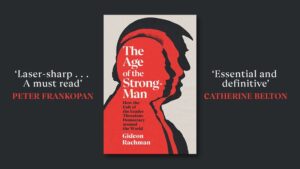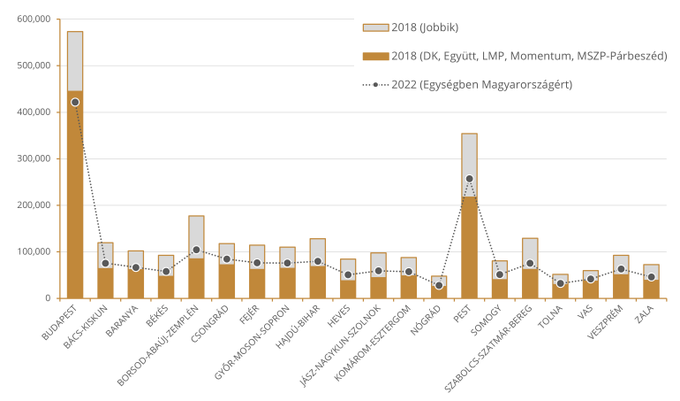Ukraine is not the only place where the contest between autocracy and democracy is taking place. It is also happening within several European democracies, through elections rather than military conflict. In these countries, politicians who are friendly to Putin — and share his right-wing, nationalist outlook — are trying to win power, David Leonhardt writes for The New York Times.
Two of them appear to have succeeded yesterday, he adds. In both Hungary and Serbia, where pro-Putin incumbents Viktor Orban and Aleksandr Vucic won re-election.
The Organization for Security and Cooperation in Europe (OSCE) said the elections in both Serbia and Hungary were marred by the “absence” of level playing fields.

National Endowment for Democracy (NED)
The results confirm the “acceleration of authoritarian drift in these two countries,” said Giorgio Fruscione, an analyst at the Institute for International Policy Studies (ISPI). “The democratic regression will continue” since voters in Budapest and Belgrade seem to have “rewarded the Russian autocratic model, of which Orban and Vucic are the main importers,” he added.
Orbán’s win sets the stage for more battles over the future of democracy, reports suggest.
In an extraordinary moment in his victory speech on Sunday night, POLITICO adds, Orbán mentioned Ukrainian president Volodomir Zelenskyy as one of the opponents his party had faced in the election — along with many of his usual targets, such as “the left wing at home,” “the international left wing,” “Brussels bureaucrats” and Hungarian-American financier George Soros.
 After his election victory, Orban claimed, as he often has in the past, that his brand of illiberal conservatism represents the future of Europe. That is a challenge to the rest of the EU, says FT analyst Gideon Rachman. author of a new book, The Age of the Strongman. It should be taken extremely seriously, at a time when another authoritarian nationalist is committing war crimes on Hungary’s eastern border.
After his election victory, Orban claimed, as he often has in the past, that his brand of illiberal conservatism represents the future of Europe. That is a challenge to the rest of the EU, says FT analyst Gideon Rachman. author of a new book, The Age of the Strongman. It should be taken extremely seriously, at a time when another authoritarian nationalist is committing war crimes on Hungary’s eastern border.
The results are also a boost for China’s projection of sharp power in Europe, observers suggest.
“I would say that this moment in time, Serbia and Hungary are China’s two most sincere and most enthusiastic partners [in Europe],” said Vuk Vuksanovic, a professor specializing in Serbian geopolitics at the London School of Economics. “So the fact that Vucic and Orban were re-elected, it was good news for Beijing when we are seeing a lot of uneasiness regarding Europe and China.”

Peter Kreko
Peter Kreko (right), director of the Budapest-based Political Capital Institute, expected plans for a Fudan University campus in the Hungarian capital – funded by expensive Chinese loans – to go ahead, despite protests that brought thousands to the streets last year. “After this huge victory Orban can do whatever he wants practically without any restraints,” Kreko said.
The most likely scenario is that autocratic rule is extended and consolidated, Political Capital observes:
The conquest of the judiciary can be finished, which is the last, still partly free branch of government, the space for free discussions will be even more limited, and the regime can become even more authoritarian as a response to the deteriorating economic situation. Only external (EU-NATO) controls will remain on their power, which can be expected to become stronger as a result of the Russo-Ukrainian war.

Political Capital
With the world distracted by the war in Ukraine, and having little bandwidth to focus on the brutality and bloodshed in Myanmar, China has dramatically ramped up support for the regime, further entrenching a growing split between the world’s autocracies and democracies, notes Council on Foreign Relations expert Joshua Kurlantzick.
Faced with the latest evidence of the barbaric behavior of Russian troops in Ukraine, Europe needs to step up its sanctions against Putin, says Oxford University’s Timothy Garton Ash.
But Orbán’s government would never allow weapons supplies to go through Hungary to Ukraine, nor sanctions to be imposed on the 85% of Hungary’s gas and 64% of its oil that comes from Russia, he writes for The Guardian. Europe should now get tough on both the Russian enemy without and the Hungarian enemy within. But can it and will it do both at once?
The Hungarian election results show that “illiberal democracy” can exist in Europe, even as it faces a threat from Russia. Indeed, another authoritarian leader with close links to Russia is projected to win an impending election in Serbia, too, Umut Korkut writes for The Conversation.
Ukraine is not the only place where the contest between autocracy & democracy is taking place, @DLeonhardt writes for @nytimes It is also happening within several European democracies, like Hungary & Serbia, where pro-Putin incumbents won re-lection. https://t.co/Ce9aKCajZK
— Democracy Digest (@demdigest) April 4, 2022







